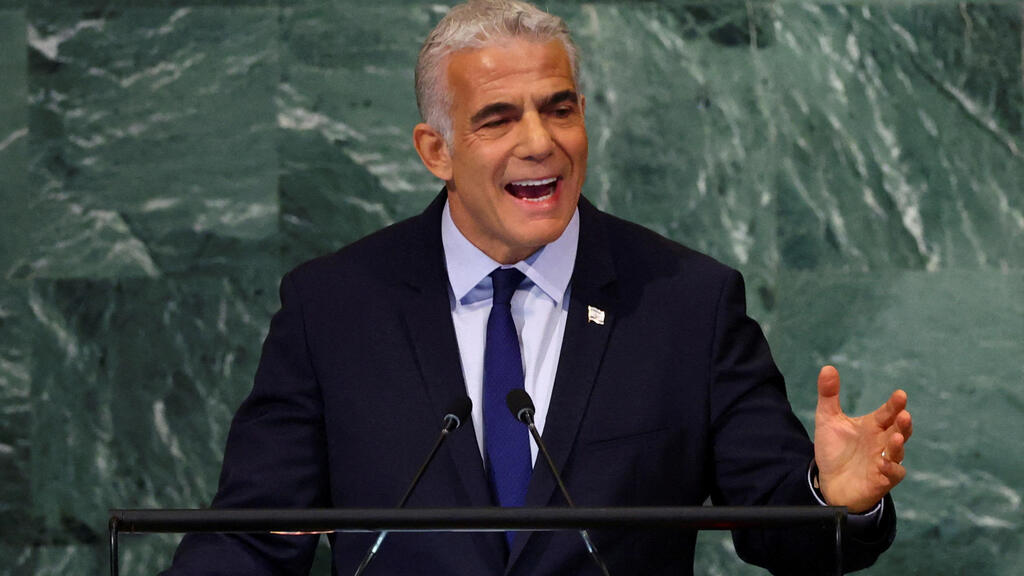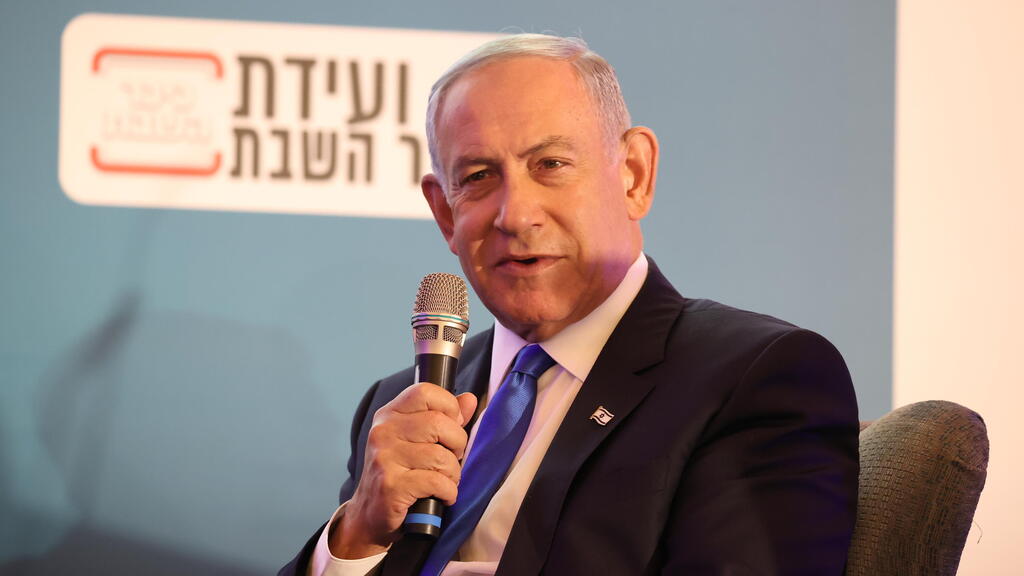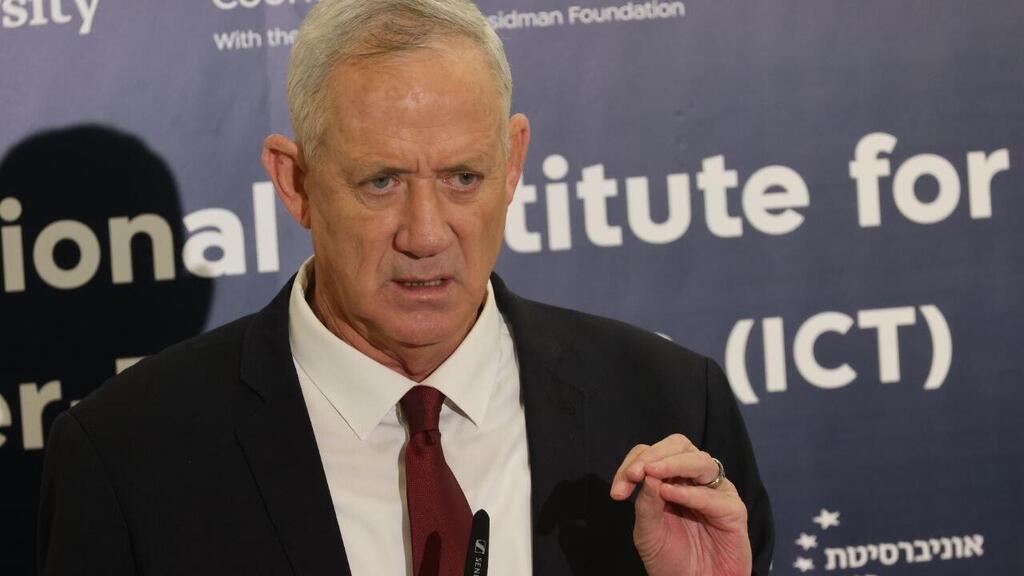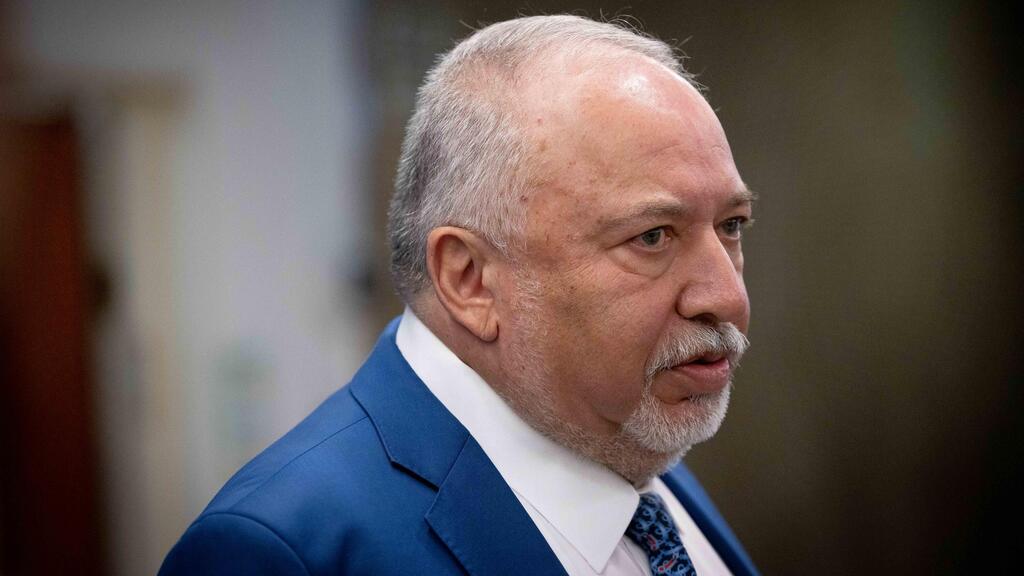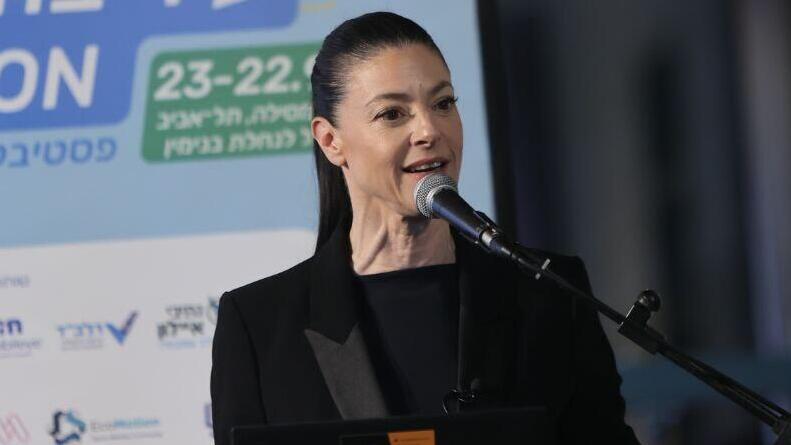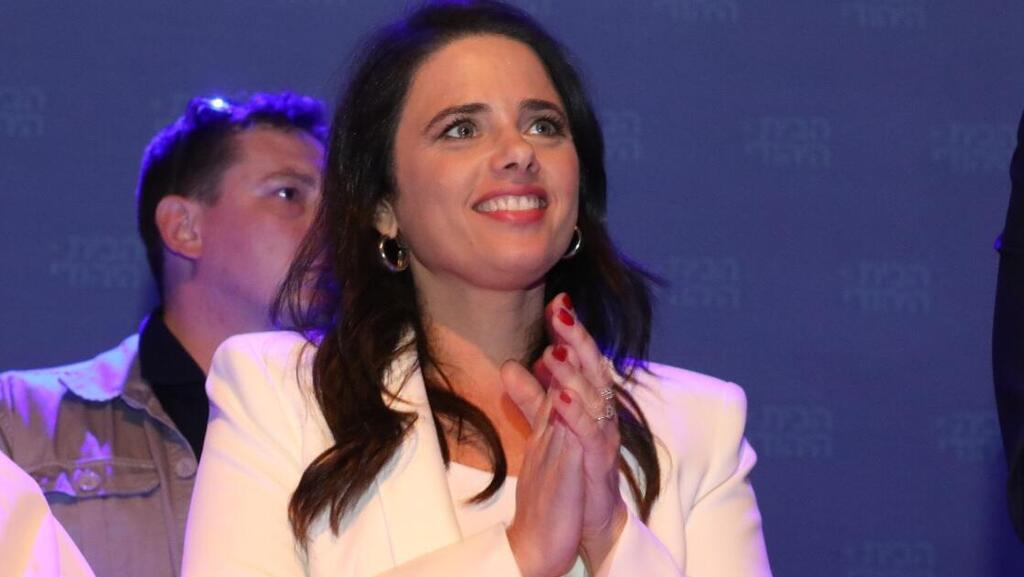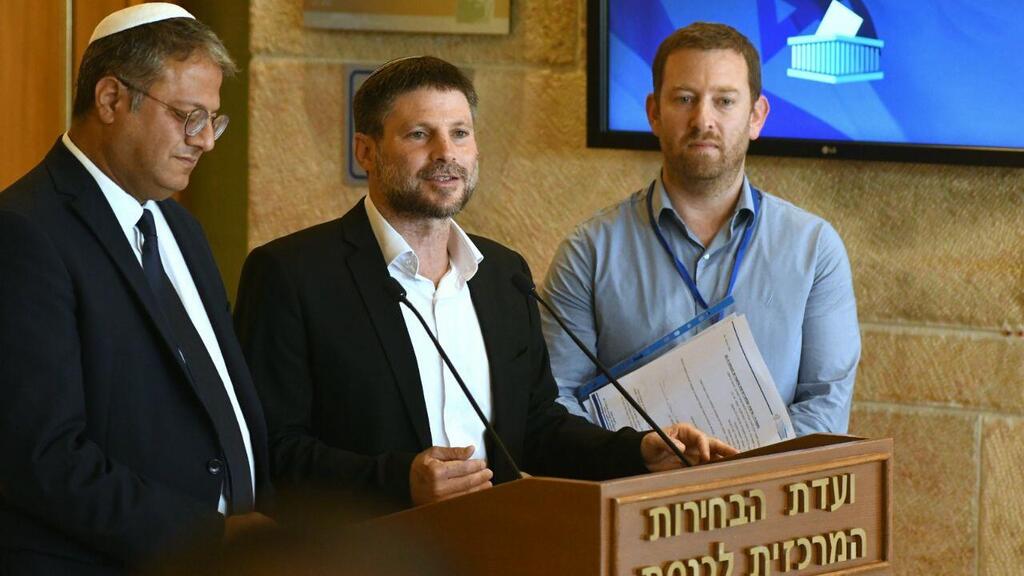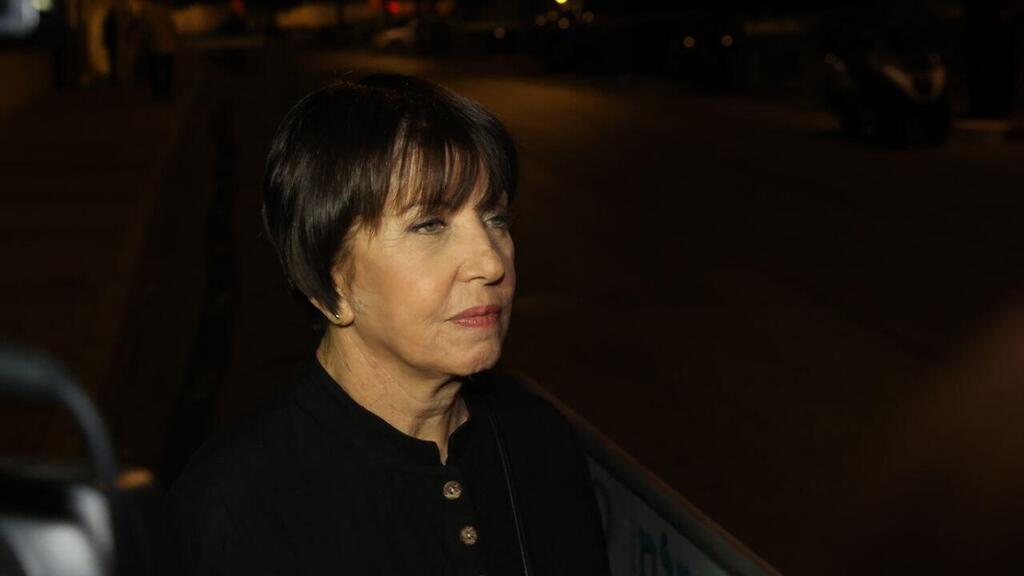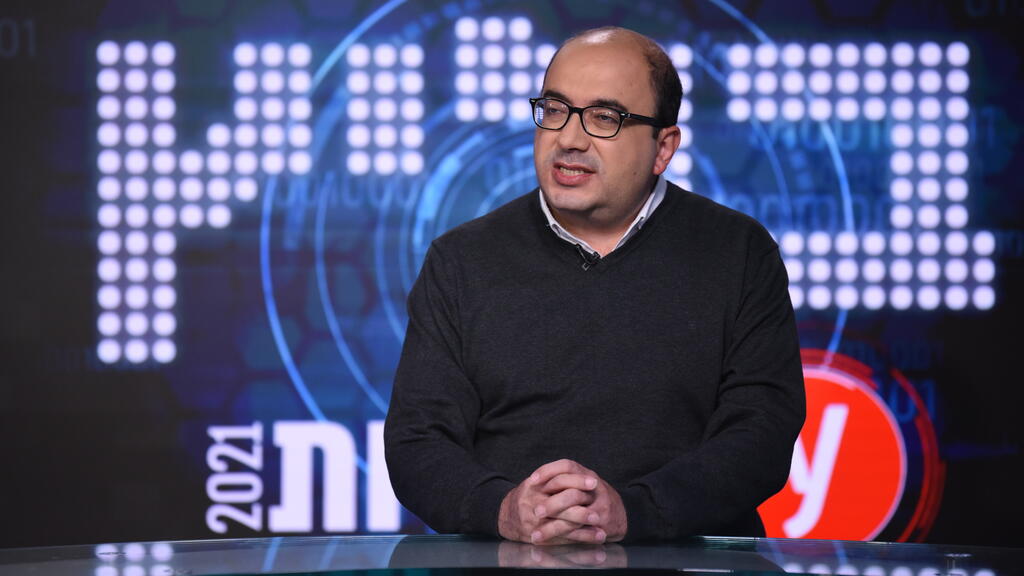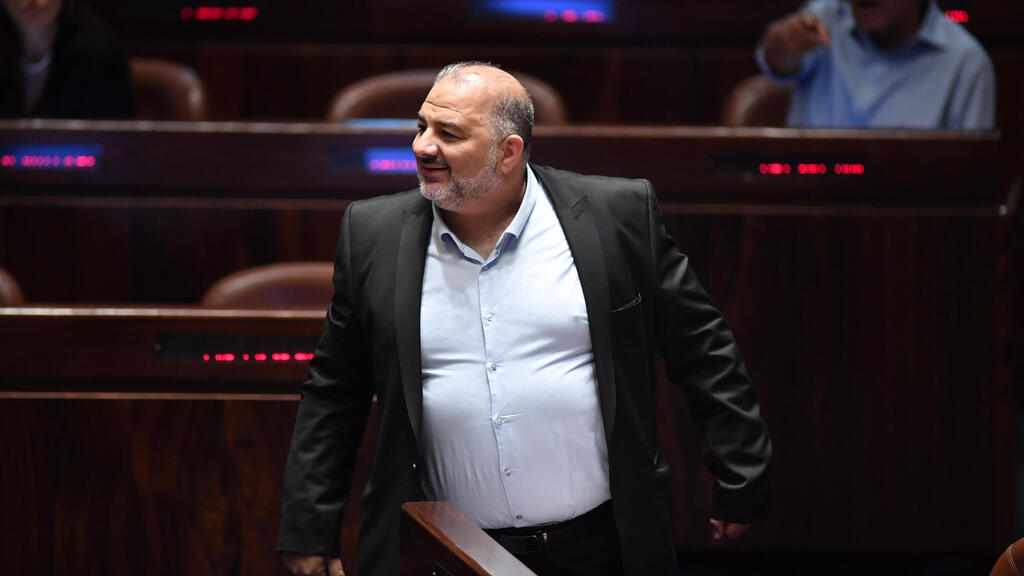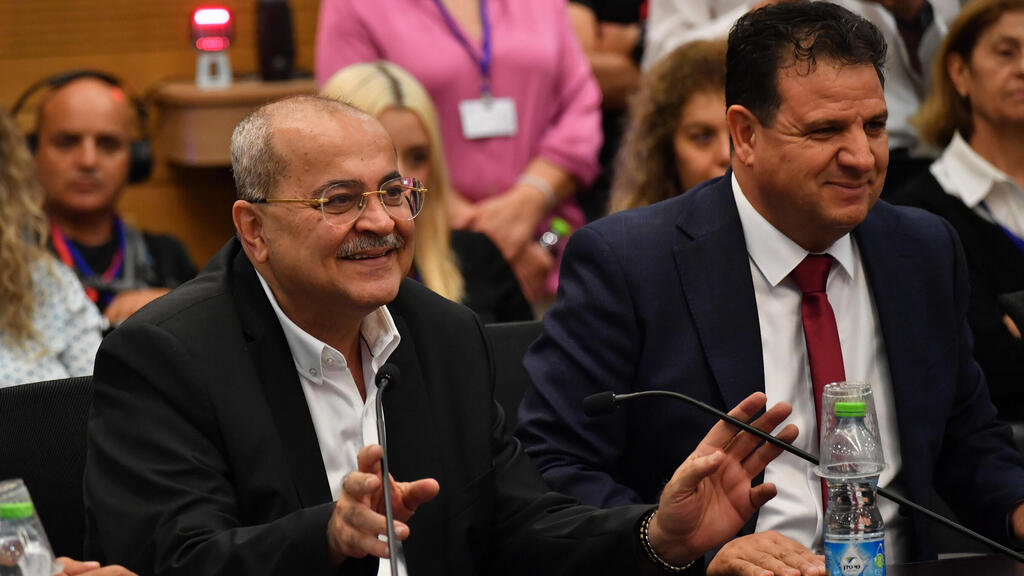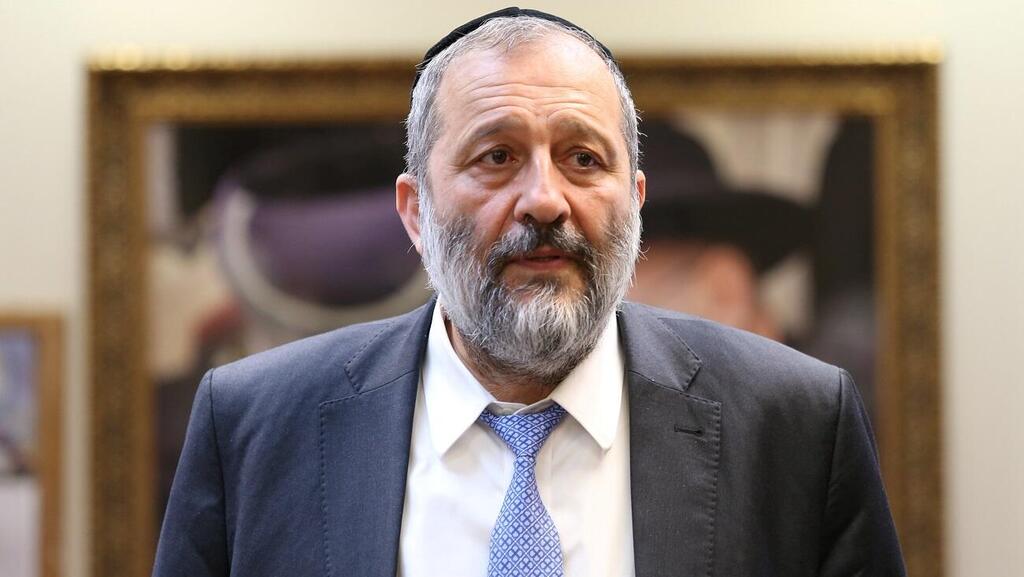Getting your Trinity Audio player ready...
After several months of subdued campaigning for the 25th Knesset, it is finally starting to pick up steam, with the Jewish High Holidays reminding the candidates that election day is just around the corner.
Now, the parties look to have started to polish their slogans and campaign platforms in an attempt to maximize their appeal to voters ahead of November 1.
13 View gallery
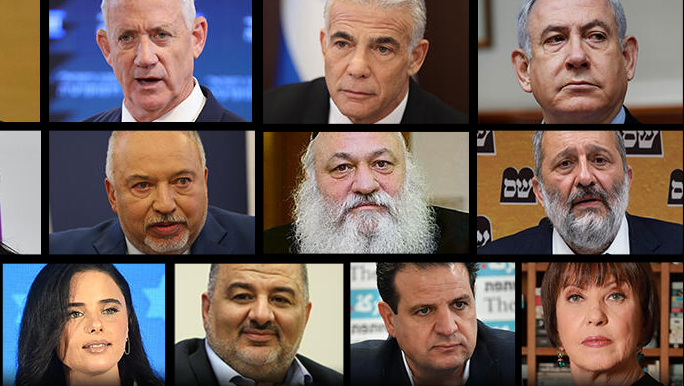

Party leaders of the November 2022 elections
(Photo: Yoav Dudkevitch, Od Moalem, Yair Sagi, Alex Kolomoisky, Amit Shabi, Reuters, EPA, United Arab List spokesperson)
These are the messages the various parties intend to convey in the hopes of winning over voters - and perhaps bringing an end to what seems like a never-ending political turmoil in Israel:
The Yesh Atid party, led by Prime Minister Yair Lapid, intends to implement what it calls "a campaign of hope" to counter opposition's "campaign of fear, hate, and incitement."
Yesh Atid will likely argue that in order to form a stable government, a large and politically rich party will have to hold the fort.
The party's campaign is expected focus on tackling the cost of living, violence against women, and building a safety net for senior citizens.
Meanwhile, this month, Yesh Atid's 150 branches will continue their nationwide campaign missions, while also launching a new website in the coming days.
The Likud, led by Opposition chief Benjamin Netanyahu, will spend the next month focusing on a widescale campaign focused on traveling through Israel and meeting supporters. Additionally, thousands of Likud activists will go door to door in the hopes to encourage Israelis who didn't vote in the last round of elections to do so this time around.
The slogan Netanyahu plans to promote in this election camping is - "It's either right-wing or Palestine." This refers to Lapid's alleged willingness to join forces with the Arab parties.
The National Unity Party, led by Defense Minister Benny Gantz, is set to receive 12 Knesset seats in the November 1 vote, according to current polls - fewer than what Yesh Atid and Likud are set to pull. This party is expected to continue its attempts to convince the public that only Gantz is capable of putting together a stable government.
The National Unity Party's slogan is set to focus on warning the public against a "November nightmare," alleging a situation in which Netanyahu returns to power and brings with him far-right lawmakers Itamar Ben-Gvir and Bezalel Smotrich to the government.
Yisrael Beytenu, headed by Finance Minister Avigdor Liberman, is constantly reminding us it will join forces with neither Netanyahu, nor the ultra-Orthodox parties in the formation of the next government. Liberman himself claims he has no problem with the Likud as a party, but as long as it is led by Netanyahu - he will refuse to align with it in any way.
Additionally, the finance minister will likely parade his accomplishments in the last year during the campaigning, and claim he has managed to lead the Israeli economy to recovery and 8.2% growth following the pandemic.
Besides its loyal secular Russian-speaking voters, Yisrael Beytenu will likely target other sectors of the Israeli society: high-tech workers, soldiers, new immigrants, senior citizens, and those seeking to become first-time homeowners. The campaign focuses on governmental stability, restoration of personal security, a free market economy, and reduction of social gaps.
The Labor Party, with Merav Michaeli at its helm, has adopted the slogan "Fighting for the truth," using masculine and feminine conjugations of the verb. Recent polls show that while most of the other parties' leaders have previously allied with Netanyahu, Michaeli has never done so. This gives her party the privilege of avoiding Netanyahu question in its campaign, and focus on plans for the future of Israel and its people.
Among the issues Michaeli will likely promote are running the light rail train in the Tel Aviv Metropolitan Area on Shabbat, a reform to keep women protected from violence as well as aid packages for young families.
The Jewish Home, headed by Ayelet Shaked, is not expected to pass the electoral threshold, but will call on the right-wing voters to help form a more moderate coalition. The campaign will push to address the issue of the loss of governance in Israel, and call for Shaked to return to head the Justice Ministry.
Additionally, Shaked is reminding us that without her, Netanyahu has no chance of reaching 61 Knesset seats needed to form a government. The Jewish Home is relying on swing voters, hoping they will help them catch up to the rest of the parties.
The Likud, meanwhile, continues to attack Shaked and encourage her to quit the race, on the basis that her candidacy is what stands between Netanyahu and a stable right-wing government. They claim her party will not make it to the Knesset and will only "waste" votes for the right-wing.
The Religious Zionist Party is has reported impressive results in recent polls. While Ben-Gvir acts as a deterrent to some of the party's typical right-wing and religious voters, Smotrich built the party's list to appeal to them nonetheless. Many of their loyal voters may have a hard time supporting a party so strongly influenced by Ben Gvir, yet it seems that no better alternative is available to them.
Left-wing Meretz, led by Zehava Gal-On, recently scored a victory with Amichai Shikli's disqualification from running on Likud's slate. In upcoming days, the party will launch a new campaign dubbed "61 with Meretz," which will emphasize the faction's importance in the battle for stopping Netanyahu from returning to power. Gal-On, according to the party, has the ability to unite anti-Netanyahu factions and make sure they form a stable and functioning government.
The Arab Parties
Despite having been disqualified from the Elections Committee, Balad, led by Sami Abu Shehadeh, appealed to the Supreme Court and will try to push through and fight against the decision.
The United Arab List, led by Mansour Abbas, seems to have won over many in the Arab sector with the help of their slogan "The closest to influence," and is expected to win as many as seven seats. Still, the party is aware that it will need to work hard in order to convince the Arab citizens to go out and vote, with the turnout in the sector is predicted to be one of the lowest in history.
The Hadash-Ta'al List, recovering from the break-up from the Balad faction, are going with the motto "Influencing with respect," and aiming to gain support from the Arab youth. The alliance, headed by Ayman Odeh and Ahmad Tibi, is promoting extreme stances towards the current Israeli leadership and emphasizing Palestinian nationalism - as part of their attempt to differentiate themselves from the United Arab List.
The Haredi Parties
Shas and the United Torah Judaism party are both expected to focus on two central topics during their campaigning - the cost of living and the state's Jewish identity, which they claim has taken a significant hit during the Bennett-Lapid administrations.
Shas has dubbed its campaign "Proud to be Jewish," and is set to continue lashing out at Liberman's economic policies, calling him "the enemy of the Haredi." Aryeh Deri, its leader, has been promoting food security reforms, focusing on distribution of food stamps to those in need.
There is also the United Torah Judaism's alliance, which consists of Agudat Yisrael and Degel HaTorah.
Agudat Yisrael has adopted the slogan "If your life is important to you" - a remark that distinguishes between the material life and the spiritual life, and appeals to those who prioritize the latter.


